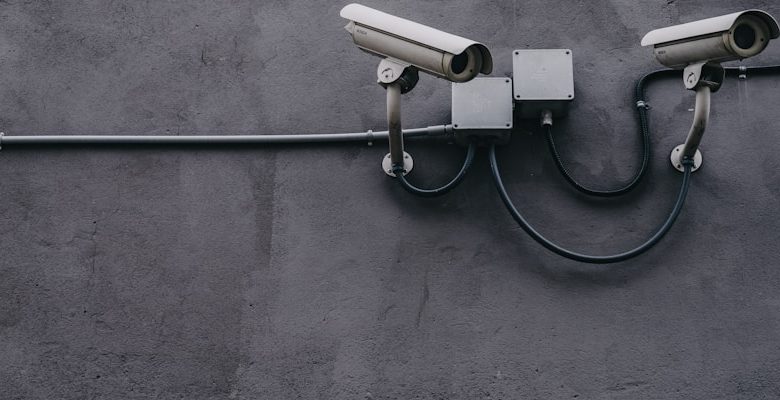The Role of Decentralized Identity in Crypto Security

- Understanding decentralized identity in the world of cryptocurrency
- Enhancing security through decentralized identity solutions
- The importance of self-sovereign identity in securing crypto assets
- Exploring the potential of decentralized identity for protecting digital transactions
- Challenges and opportunities in implementing decentralized identity for crypto security
- How decentralized identity is reshaping the future of cybersecurity in the crypto space
Understanding decentralized identity in the world of cryptocurrency
Decentralized identity plays a crucial role in ensuring security within the realm of cryptocurrency. By allowing users to have control over their own digital identities without the need for intermediaries, decentralized identity systems help to reduce the risk of identity theft and fraud.
One of the key benefits of decentralized identity is that it provides users with greater privacy and security. With traditional identity systems, users often have to trust third parties with their personal information, leaving them vulnerable to data breaches and hacks. Decentralized identity, on the other hand, allows users to store their identity information securely on the blockchain, where it is encrypted and cannot be accessed without the user’s consent.
Decentralized identity also helps to streamline the user verification process, making it easier for individuals to prove their identity online without having to repeatedly enter the same information. This can help to reduce friction in online transactions and improve the overall user experience.
Overall, decentralized identity is a powerful tool for enhancing security and privacy in the world of cryptocurrency. By giving users greater control over their own identities and reducing their reliance on third parties, decentralized identity systems help to create a more secure and transparent digital environment for all participants.
Enhancing security through decentralized identity solutions
Enhancing security through decentralized identity solutions is crucial in the realm of crypto security. By utilizing decentralized identity technology, users can have greater control over their personal information and digital assets. This technology allows individuals to create and manage their identities without relying on third-party entities, reducing the risk of data breaches and identity theft.
Decentralized identity solutions also offer enhanced privacy protection. With traditional centralized systems, personal data is stored in a single location, making it vulnerable to hacking and unauthorized access. In contrast, decentralized identity platforms distribute user information across a network of nodes, making it more difficult for malicious actors to compromise.
Furthermore, decentralized identity solutions promote interoperability between different systems and applications. This means that users can access services and transfer assets seamlessly across various platforms without having to repeatedly verify their identity. This not only enhances user experience but also reduces the likelihood of fraud and cyber attacks.
The importance of self-sovereign identity in securing crypto assets
Cryptocurrency assets are becoming increasingly popular, leading to a higher risk of theft and fraud. In this digital age, it is crucial to prioritize the security of your assets. One way to enhance security is by implementing a self-sovereign identity system.
Self-sovereign identity allows individuals to have full control over their personal information and digital assets without relying on a central authority. By using decentralized identifiers and verifiable credentials, users can securely manage their identities and authenticate transactions without the risk of a single point of failure.
When it comes to securing crypto assets, self-sovereign identity plays a crucial role in protecting against identity theft, phishing attacks, and unauthorized access. By owning and controlling their identities, users can mitigate the risks associated with centralized systems that are vulnerable to hacking and data breaches.
By incorporating self-sovereign identity into the security measures of your crypto assets, you can ensure a higher level of protection and reduce the likelihood of unauthorized access or fraudulent activities. This innovative approach to identity management is essential in safeguarding your digital wealth and maintaining trust in the decentralized ecosystem of cryptocurrencies.
Exploring the potential of decentralized identity for protecting digital transactions
Exploring the potential of decentralized identity for safeguarding digital transactions is crucial in the realm of crypto security. Decentralized identity offers a revolutionary approach to protecting sensitive information and securing online interactions. By utilizing blockchain technology, decentralized identity solutions allow individuals to manage their digital identities securely and privately. This ensures that personal data is not stored in a central database that is vulnerable to hacking or unauthorized access.
With decentralized identity, users have control over their own data and can choose what information to share and with whom. This gives individuals the power to protect their privacy and prevent identity theft. Furthermore, decentralized identity can enhance the security of digital transactions by eliminating the need for third-party intermediaries or centralized authorities. This reduces the risk of fraud and enhances trust in online transactions.
By embracing decentralized identity solutions, businesses can also benefit from increased security and reduced liability. Implementing decentralized identity can streamline processes, reduce costs, and improve the overall efficiency of digital transactions. As the digital landscape continues to evolve, decentralized identity will play a pivotal role in ensuring the security and integrity of online interactions.
Challenges and opportunities in implementing decentralized identity for crypto security
One of the main challenges in implementing decentralized identity for crypto security is the lack of standardized protocols across different platforms. This can lead to interoperability issues and make it difficult for users to manage their identities securely. However, this challenge also presents an opportunity for developers to come together and create unified standards that can be adopted by the industry as a whole.
Another challenge is the potential for security vulnerabilities in decentralized identity systems. Without proper encryption and authentication mechanisms in place, bad actors could exploit weaknesses in the system to gain unauthorized access to sensitive information. To mitigate this risk, developers must prioritize security in the design and implementation of decentralized identity solutions.
On the other hand, decentralized identity offers opportunities for increased privacy and control over personal data. By giving users ownership of their identities and the ability to selectively disclose information, decentralized identity systems can empower individuals to protect their digital identities from being exploited by third parties. This shift towards user-centric identity management is a positive step towards enhancing security in the crypto space.
Overall, while there are challenges to overcome in implementing decentralized identity for crypto security, the opportunities for improved privacy and control make it a promising solution for enhancing security in the digital age. By addressing interoperability issues, prioritizing security measures, and empowering users to take control of their identities, decentralized identity has the potential to revolutionize the way we approach security in the crypto space.
How decentralized identity is reshaping the future of cybersecurity in the crypto space
Decentralized identity is revolutionizing the way cybersecurity is approached in the crypto space. By shifting from centralized systems to decentralized ones, the security of digital identities is greatly enhanced. This new approach eliminates the single point of failure that traditional systems have, making it much harder for malicious actors to compromise sensitive information.
One of the key benefits of decentralized identity is the increased privacy and control it provides to users. With decentralized systems, individuals have ownership of their own data and can choose who they share it with. This not only reduces the risk of data breaches but also puts users in charge of their online identities.
Furthermore, decentralized identity systems are tamper-proof and resistant to censorship, making them ideal for the crypto space where security is paramount. The use of blockchain technology ensures that all transactions are secure and transparent, reducing the risk of fraud and unauthorized access.
As the crypto space continues to grow, decentralized identity will play an increasingly important role in ensuring the security and integrity of digital transactions. By embracing this new paradigm, businesses and individuals can protect themselves from cyber threats and build trust in the digital economy.



